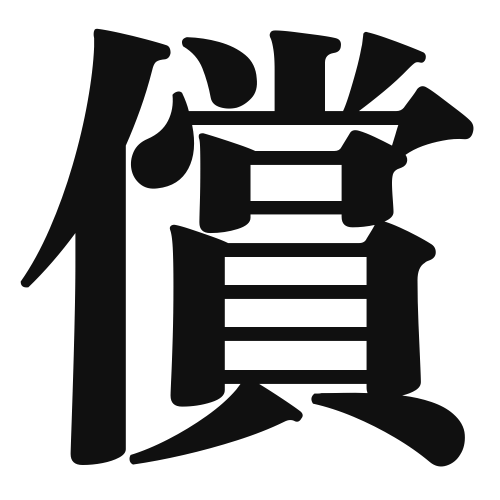1. Overview of Meaning
The kanji “償” (shou) means “to compensate” or “to atone.” It conveys the idea of making amends for a loss or wrongdoing, often through some form of payment or restitution.
2. Formation and Radical
The kanji “償” is a compound character (会意文字) that combines elements to convey its meaning. It consists of the radical “亻” (person) on the left, indicating a human element, and “賞” (shou) on the right, which relates to reward or appreciation.
The radical “亻” is commonly associated with actions involving people, emphasizing the human aspect of compensation or atonement.
3. Examples of Usage
Common words and phrases that include “償” are:
- 償い (shonai) – compensation, atonement
- 償う (shounau) – to compensate, to atone
Example sentence in daily conversation:
「彼は自分の過ちを償うために、全力を尽くしています。」
(“He is doing his best to atone for his mistakes.”)
4. Synonyms and Antonyms
Similar kanji with related meanings include:
- 補償 (hoshou) – compensation, which often refers to financial reimbursement.
- 贖罪 (shokuzai) – atonement, which has a more spiritual or moral connotation.
Antonyms include:
- 損 (son) – loss, which indicates a negative outcome rather than compensation.
5. Cultural and Historical Background
The concept of “償” is deeply rooted in Japanese culture, where making amends is often seen as a moral obligation. This is reflected in various proverbs and idiomatic expressions, such as:
- 「罪を償う」 (tsumi o shounau) – to atone for one’s sins.
In Japanese society, the act of compensating for wrongs is not only a legal matter but also a social expectation, highlighting the importance of harmony and responsibility.
